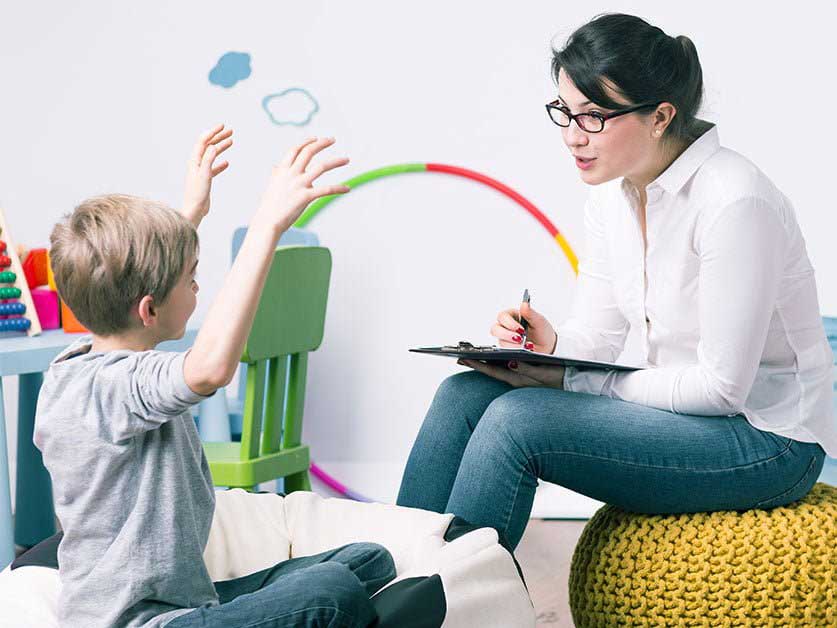What causes autism?
There are no definitive answers to that question! What we do know, however, is that the brain of an individual with autism develops differently and processes the world differently.
That different processing style leads to a very specific world view, patterns of behavior, and a predictable approach to life for the individual. Together, these result in what we now call the social disability – autism.
In This Article:
The “Times 10 Factor”
Autism As A Social Disability
A New Respect
The “Times 10 Factor”
While we don’t know what causes the autism to create sensory overload, from the moment a child with autism is born, their sensory system is overwhelmed on some or all channels. In response to that overwhelm the brain neurology begins to develop differently to manage or block out the overwhelming or painful incoming stimulus.
As one result of the sensory hypersensitivity, among other things, the brain develops a more limited, compartmentalized and linear database of experience, all of which contribute to the difficulties the individual experiences.
The times 10 factor is a great rule of thumb to help you get a sense of what we mean. It’s a quick trick to put yourself in the shoes of someone with ASD and get a sense of their experience.
Anything that is hard for you is 10 times harder for someone on the spectrum. (Click here to read about The Times 10 Intensity Rule of Thumb.)
If it is hard for you to approach someone in a social situation, it is 10 times harder for someone on the spectrum to do it. If you get agitated driving in traffic, someone on the spectrum will be 10 times more agitated. If a situation is confusing to you and you feel awkward and uncomfortable about it, it is going to be 10 times more confusing, more awkward and more uncomfortable for someone on the autism spectrum.
“On a regular basis, those with ASD must force themselves to participate in painful social contact to survive in our culture.”
If our world is not easy, their world is not easy by a factor of 10.
Autism As A Social Disability
On a regular basis, those with ASD must force themselves to participate in painful social contact to survive in our culture. That is like the rest of us asking ourselves to willingly work in an office where the fire alarm sounds every day, all day long.
Are there things that irritate you? Does the smell of coffee in the morning make you nauseous? Imagine if it were 10 times worse.
When you are trying to watch the news, does it irritate you when the neighbor’s dog is barking and you cannot hear the TV easily? It might be 10 times more distracting if you are on the spectrum.
Does it upset you when there is lots of commotion around you and you are trying to concentrate? Now imagine these circumstances 10 times worse.
Plus, it never lets up! There is no respite—EVER! That is life on the autism spectrum.
Getting our head totally wrapped around that concept changes the way we feel about the behavior we don’t like. Behavior that seems unsociable, inappropriate, or just rude takes on a new meaning when we recognize that its development is due to autism.
The sensory hypersensitivity of the autism influences the brain development and causes it to exclude taking in subtle social information. So the individual doesn’t create a database of information draw on, making every social contact more stressful. Social difficulties and the negative social experiences, especially over time create an aversion to social interaction for those with autism – a social disability. (Click here to read more about Autism As A Social Disability.)
A New Respect
Think back and remember how you acted the last time you had a really, really bad day. Did you snap at someone, swear, or perhaps even throw something? Imagine how hard life would be if every day were like that day and your anger, frustration, anxiety, and fear compounded daily.
The times 10 factor puts their behavior in perspective, doesn’t it?
Is it any wonder why people with ASD might want to be left alone? Why they might want to be alone in their room where it is dark and quiet and where they can control the environment and avoid social contact? Any wonder why autism is considered a social disability?
Any wonder why new situations, circumstances and interactions are daunting to face?
“People with this social disability deserve a deep respect and compassion because living in their world requires a great deal of effort…”
People with this social disability deserve a deep respect and compassion because living in their world requires a great deal of effort—constant and concerted effort.
So, while the answer to the question “What causes autism?” may not be clear, there is so much that we do know that can allow us to help an individual with autism make sense of the world and live more peacefully in it. (Click here to read Why Does Autism Appreciation Really Matter?)






